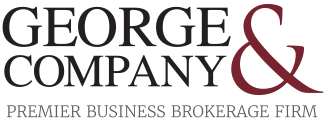508-753-1400
View Blog Posts by Category:
View Blog Posts Tagged with:
How to Find the Right Buyer in an M&A Transaction

If you are considering the confidential sale or merger of your business, then you have chosen an experienced source of counsel. One of the first steps that you should take after you have decided to sell is to work with your M&A intermediary to ascertain what type of buyer will best suit your company. You have invested countless hours, money, and emotion into growing your business. It could be devastating to sell your business to a buyer who is not the right fit only to watch them slowly run the business into the ground or bleed it dry due to hidden agendas. This is especially important if there is an element of subordinated debt in the deal structure.
While most of our clients are sensitive to the price paid, considerations such as key employees, vendor and client relationships, and the business’ name (which often contains the current owner’s name) are issues also sensitive to our clients. A good investment banker or M&A professional knows how to vet the vast numbers of potential buyers to find the one that is right for your company. The following is a list of key things to look for a buyer during a merger, acquisition, or divestiture deal.
Knowledge of Your Business
The optimal type of buyer for your business is someone that has a good understanding of your business’ industry. Some business owners tend to prefer strategic buyers because their acquisition is based on strategy and economies of scale that will drive larger profits to the bottom line. Strategic buyers seek out acquisition opportunities that will further their existing company’s objectives. Some strategic buyers will not pay a premium price however due to their perception that the barrier to entry in this industry has already been penetrated by their brand. A good investment banker can discern the difference!
The Right Price
Many clients arrive at an M&A office citing a specific selling price that they desire for their business. Often, this i long before they have received an authorized valuation. Once all of the different aspects (such as tangible and intangible assets as well as gross and net revenues) have been considered, the business appraiser will often indicate a price that is higher or lower than the one that the seller desired. While the M&A intermediary will strive to obtain the highest possible selling price for the seller, oftentimes compromises must occur on both sides of the deal in order to close it at a price that is considered to be fair market value. The M&A intermediary may recommend that that seller accept a lower payout price in cash if they believe that a different deal structure works to the seller’s advantage. Tax issues, considerations of client concentration, contracts that are about to expire, depreciation recapture and many other reasons may precipitate a buyer to reserve paying all cash at closing.
As we often say, “the right buyer will pay the right price”.
A Good Fit Psychologically
While the prominent quality that both the seller and the M&A intermediary will look for in a business buyer is the overall investment amount, it is also paramount that the buyer and the seller synergize psychologically. At George & Company, we value the personal connection that our buyers and sellers develop throughout the process of an M&A deal.
If the buyer and seller do not get along well at the deal’s commencement, then we may advise both parties to move on for a variety of reasons. For example, many business owners stay employed by the acquiring company for a year or more during the transition period. If the buyer and seller are in conflict during due diligence, then the seller may be unhappy in their attempt to work with a buyer that they dislike on a daily basis.
The potential buyer should display trustworthiness as well as a similar goal orientation as the current business owner. Many business sellers become hesitant to sell when they fear that a new owner will lead the company in an adverse direction due to hidden motives.
We also encourage that not only the buyer meshes well with the current business owner, but also has a synergy with the business culture of the company as a whole. A buyer that can easily meld with the business’ current philosophies will possess the ability to retain existing employees and maintain their morale.
All things considered, this may suggest that the seller should turn away an affluent buyer due to a lack of synergy and, then we may advise you to do so because we care about your well-being and that of your company.
Confidentiality
At George & Company, confidentiality is the operative word. The utmost priority as a business owner when considering the sale of a company is to ensure that the deal is performed in a confidential manner in order to avoid leaking the news of a sale to the public, customers, vendors or employees. The best way to market your business for sale while retaining complete confidentiality is to leverage the experience of a professional M&A intermediary.
Business brokers are well versed in the matchmaking of M&A buyers and sellers. We have over 4,000 active buyers in our data base who are ready to pounce for the right company. Contact George & Company to learn more about our confidential business valuations and M&A services.
